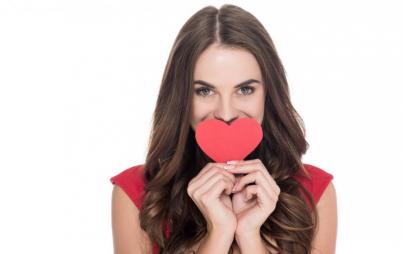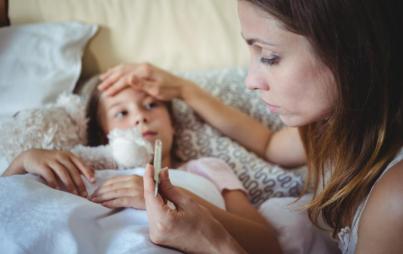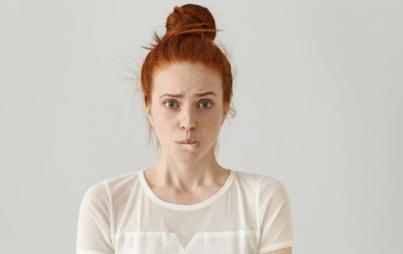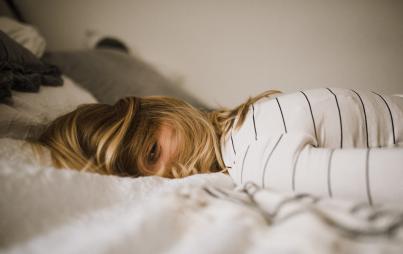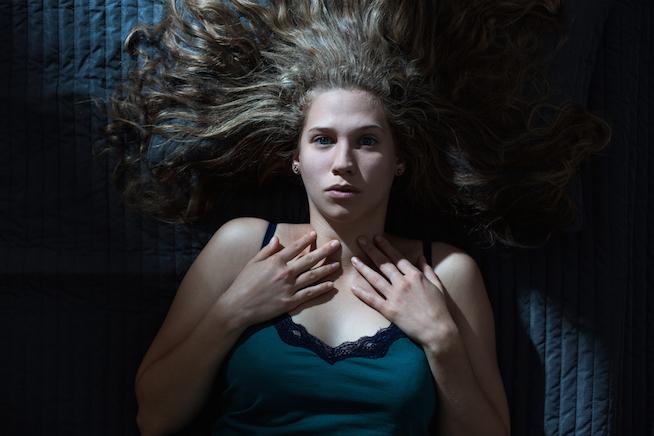
Insomnia is an odd affliction, ephemeral, absurd. Like a knock-knock joke that slowly kills you.
Yes, that’s right: Being assigned female at birth is a “condition” that makes you more likely to have insomnia.
I have been robbed of my dreams for more than 15 years by insomnia, an unpredictable bully playing tricks with my mind and body like a dog with its chew toys. I am given weeks or months of normal sleep, only to be blown back to sleeplessness like a sudden wind.
An estimated 30-35% of adults will grapple with this particular sleep disorder at one point in their lives — and 10% will deal with insomnia chronically.
I’m one of them.
“There is no definitive test for insomnia,” according to the National Sleep Foundation (NSF). But believe me, it’s straightforward to self-diagnose: Ask yourself if you can say with certainty that you’ve actually slept in the hours between dusk and dawn.
Are you sure?
Insomnia is an odd affliction, ephemeral, absurd. Like a knock-knock joke that slowly kills you.
Although insomniacs will experience a wide array of personalized horrors, the standard symptoms according to Sleep Education (and many other fact sheets) are “difficulty falling asleep, difficulty staying asleep throughout the night, and waking up too early in the morning.”
You can rate yourself on the insomnia severity index, just for kicks. (By this measure, I consistently bounce between clinical and subclinical insomnia.) You can try treatments like cognitive behavioral therapy, drugs, and sleep hygiene. You can cry and pray.
But insomnia may still strike. It’s a shape-shifter. It can be its own sleep disorder, a symptom of other sleep disorders, or a symptom of other things — things that have nothing to do with sleep, like disease, stress, depression, advanced age, or, as Talk About Sleep charmingly notes, being “female.”
Yes, that’s right: Being assigned female at birth is a “condition” that makes you more likely to have insomnia.
I rolled my eyes when I first heard that, but it’s technically true. The National Sleep Foundation asserts that women are more likely to face insomnia than men, at a rate of 57% vs. 51% of men who report “they experienced a symptom of insomnia at least a few nights per week.”
Wonderful.
A friend recently asked me if I could pinpoint what triggers my insomnia. I can't. It feels out of my control, like the lunar orbit or desire. There are months upon months that I can almost forget what it’s like to wrestle through the night, and then suddenly all I can remember about my life are the years and years of staying awake.
Like I’m waiting for something: death, God, a trip to Disneyland…. It's hard to say.
We all know sleep is important, but over the years I’ve developed a sort of a twisted fascination with what happens when we don’t sleep: car crashes, impaired cognitive thought, plummeting libido, prematurely-aged skin, weight gain, and a doubled risk of death from “all causes” are just a few of the joys linked to sleep deprivation. Insomnia can prevent your brain from compressing experiences into memories. so that your life literally slips away.
It can prevent your glymphatic system, a sort of cellular janitor, from washing out junk from the cells of your brain. It can impair problem solving and exacerbate fear and PTSD. In one extremely rare form, insomnia can literally keep you awake until you die.
And if you weren’t already depressed or sick in other ways, insomnia can make that happen for you. It can cause depression, anxiety, a weakened immune system, serious disease, and perhaps even Alzheimer’s.
It is, in short, a waking nightmare.
Consider that sleep deprivation is a torture method that's been condemned by the United Nations. That thought frequently bounces around my mind, as I lay inexplicably awake in bed staring at the dark ceiling. Perhaps this is why sleep aids are projected to become a $76.7 billion global market by 2019 according to BCC Research.
Yet even in that massive industry, it can be difficult to find relief.
Try yoga. Try breathing exercises. Try positive thinking. Try not to punch anyone.
I’ve tried building my schedule around my circadian rhythm — that is, the biological clock or “chronotype” that’s built into my DNA. I’m a night owl, hard-core. Morning larks, like my mother, Thomas Edison, Napoleon, and apparently the rest of society, are less prone to insomnia and more prone to giving insomniacs such advice as: “When you’re tired enough, you’ll sleep.”
Thanks, but insomnia doesn’t work like that.
I’ve tried practicing good sleep hygiene (recommended habits to prevent and manage insomnia). This includes avoiding naps, alcohol, caffeine, and late meals; avoiding exercise, computers, and cellphones for x hours before bed; avoiding using your bedroom for any activities other than sleep; avoiding, avoiding, avoiding.
Try yoga. Try breathing exercises. Try positive thinking.
Try not to punch anyone.
I’ve tried meds and therapy. I’ve tried faith: When I first began to look for relief for my insomnia, my church encouraged me to pray and seek healing in God. “The Lord,” Psalm 127:2 promised me, “gives sleep to those he loves.”
I’m still awake.
Sometimes I wonder if I’ve actually gone insane and imagined the whole thing, since it doesn’t seem physically possible to have slept so badly for so long. Over the years, I've accepted that insomnia is a part of my journey. I'm not saying that insomnia has made me stronger or better. It hasn't — it makes me weaker.
But it's also taught me 7 lessons that are, by necessity, useful.
1. Insomnia sucks.
There really is no inspirational takeaway. It’s bad all around.
But the monumental suckage has forced me to develop some compassion for others and myself. Sometimes, we’re stuck with things that suck, and we feel desperately powerless.
That’s true for everyone at some point.
2. My body is not the enemy.
It's so easy for insomnia to spiral into self-hatred, and for me to blame my body.
But my body is with me in the struggle for sleep, and I should treat it as an ally.
3. Nighttime is still magical.
Nighttime and insomnia mix like drunkenness and break down the wall (read: sanity) that blocks my creativity during the day.
Hemingway famously said, “Write drunk; edit sober.”
I write with insomnia and edit with daylight.
4. Sleep is not the only way to rest.
Obviously sleep is necessary, but even if I can't sleep I can do other things to be kind to myself. Taking care of myself needs to happen in many other ways at many times throughout the day for me to have a real chance at rest.
5. What happens in my mind is immensely important.
My mind can keep me awake for days and alter my reality. How incredible is that power?
I used to dismiss insomnia, stress, and anxiety as “not-real” problems because they were inside my head. But my head is a real place.
As Dumbledore tells Harry, “Of course it is happening inside your head, Harry, but why on earth should that mean that it is not real?”
Thanks, Dumbledore.
6. If I'm not sleeping, something is wrong.
Insomnia is a cue for me to do some investigative work. Is something causing me stress, and is there anything I can do to eliminate or at least minimize that stress? How’s my health?
If I check in and still can't sleep, then I know it might be time to seek external help.
7. There's nothing wrong with needing help.
If insomnia has taught me nothing else, it's that certain things are out of my control and that sometimes I’m not OK — and I need help.
Some problems are too thorny to hack away at alone.
Ultimately, insomnia reminds me that I am mortal.
I am weak. I am human. My body and my mind are vulnerable.
These facts might not seem comforting, and they might not help me sleep, but they do help me accept my reality — and myself.




